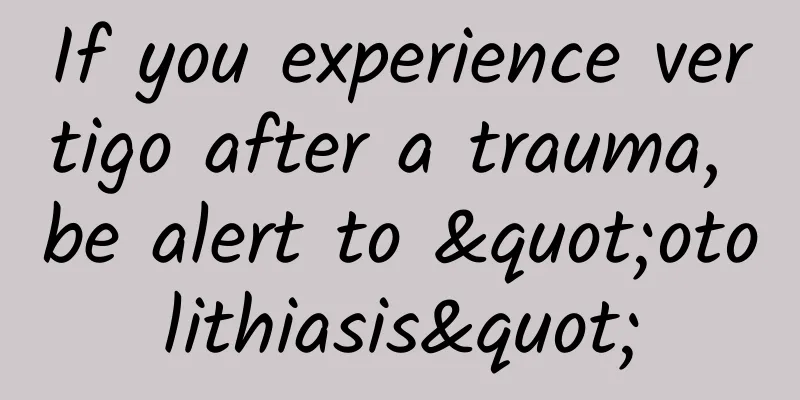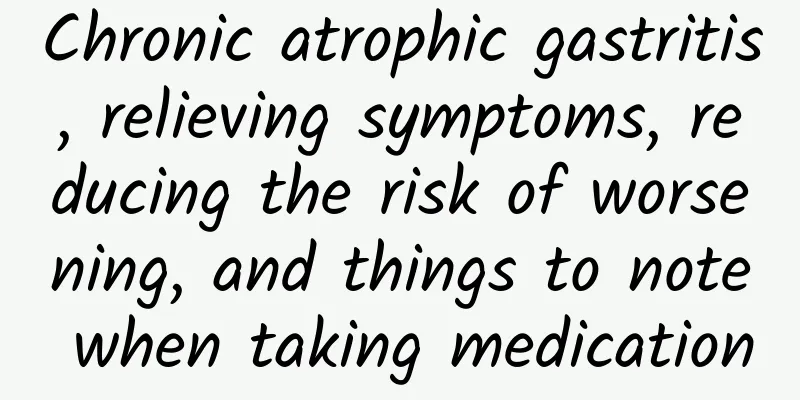If you experience vertigo after a trauma, be alert to "otolithiasis"

|
Author: He Haixia, deputy chief physician of the Department of Otolaryngology, Wuhan Central Hospital Reviewer: Chen Wei, Chief Physician, Department Director, Department of Otolaryngology, Wuhan Central Hospital Ms. Zhou loves sports on weekdays, and often invites friends to go out to play ball and climb mountains. Some time ago, when she was exercising, she accidentally broke her leg and hit a big bump on her head. Fortunately, she was not seriously injured after examination. After resting at home for 2 weeks, Ms. Zhou felt that she had recovered well and wanted to go out for activities. However, she found that the bed seemed to have magnetic force. She couldn't get up no matter what. She felt dizzy when she moved, and she was also accompanied by nausea and vomiting. Her family rushed her to a nearby hospital for a review of her head and leg injuries. They all recovered well, but the symptoms of vertigo did not decrease. The next day, her family accompanied Ms. Zhou to the vertigo clinic of the otolaryngology department of Wuhan Central Hospital. After the doctor carefully asked about her medical history and physical examination, Ms. Zhou was diagnosed with "otolithiasis". Subsequently, the doctor performed manual repositioning treatment on her, and her symptoms were quickly relieved, and she could walk on her own. "I obviously fell and hurt my head, how could I get an ear disease?" Ms. Zhou was puzzled. Figure 1 Copyright image, no permission to reprint In fact, there is a substance called "otolith" in our inner ear, which is mainly composed of calcium carbonate crystals and is essential for maintaining the balance of the human body. Under normal circumstances, its decomposition and synthesis are in a dynamic equilibrium state. Once this balance is broken, the otolith falls off and stimulates the endolymph, which will cause vertigo, namely benign positional vertigo, commonly known as "otolith disease". Figure 2 Copyright image, no permission to reprint When the human body is traumatized, especially after brain or ear trauma, otoliths may fall off, inducing "otolith disease". In addition, factors such as arteriosclerosis, hypertension, diabetes, etc., which lead to insufficient blood supply to the inner ear, as well as ear diseases such as chronic otitis media, vestibular neuritis, and Meniere's disease, may also trigger an inflammatory reaction in the inner ear and cause otoliths to fall off. When the body position changes, such as turning over, getting up, lying down, lowering the head or looking up, the fallen otoliths stimulate the inner ear, and the patient may experience a short period of dizziness, usually not more than one minute, and sometimes accompanied by symptoms such as nausea and vomiting. Otolith repositioning is the main treatment for this disease. Different repositioning techniques are used according to the diseased side and specific location, which can often achieve good treatment results. For some patients with milder symptoms, the symptoms may be relieved by rest or oral medication. If the symptoms persist or recur, it is recommended to seek medical attention in time and be evaluated and treated by a professional physician. Although otolithiasis is a benign vertigo disease, it can seriously affect the quality of life if it recurs. After repositioning treatment, patients should take medication regularly as prescribed by their doctor and develop an individualized exercise rehabilitation plan. At the same time, maintain a healthy lifestyle and avoid head trauma or rapid head movement. Actively treat related diseases such as atherosclerosis, osteoporosis and primary ear diseases. You should also abstain from alcohol, avoid staying up late, and eat less or no spicy, fried, or greasy foods to prevent the recurrence of vertigo. |
<<: Guidelines for the use of enema in elderly patients with constipation
>>: The science behind drug trials in clinical trials
Recommend
How long does it take to have normal menstruation after giving birth and what to pay attention to
The incidence of menstrual problems cannot be und...
What should you pay attention to in your diet after childbirth?
For women who have just given birth, giving birth...
How to lose belly fat after cesarean section
When it comes to the choice of birth method, most...
Folk remedies for emergency contraception
Folk remedies can not only achieve the purpose of...
Early symptoms of renal failure in women
If a woman has kidney failure, she should activel...
How to tie the fishing line more firmly? How should a novice choose the fishing line?
I have been tying my own hooks for many years, wh...
How to do breast enhancement massage
A plump breast is a symbol of a woman's matur...
Can I eat boiled eggs during my period?
Menstruation is a special period that every adult...
What to eat when ovarian function is not good?
The ovaries play the important role of secreting ...
How to take care of vaginal tear after childbirth
Many women will experience vaginal tears after gi...
Do I have to wean my baby when I'm pregnant with my second child?
Women are also quite special during the lactation...
The porridge is warm and garlicky, and the correct way to enjoy it is to eat it according to the number.
January 18th is Laba Festival After Laba, it is t...
Female friends need to know about the symptoms of breast abscess!
When a woman's breast is infected, it is easy...









